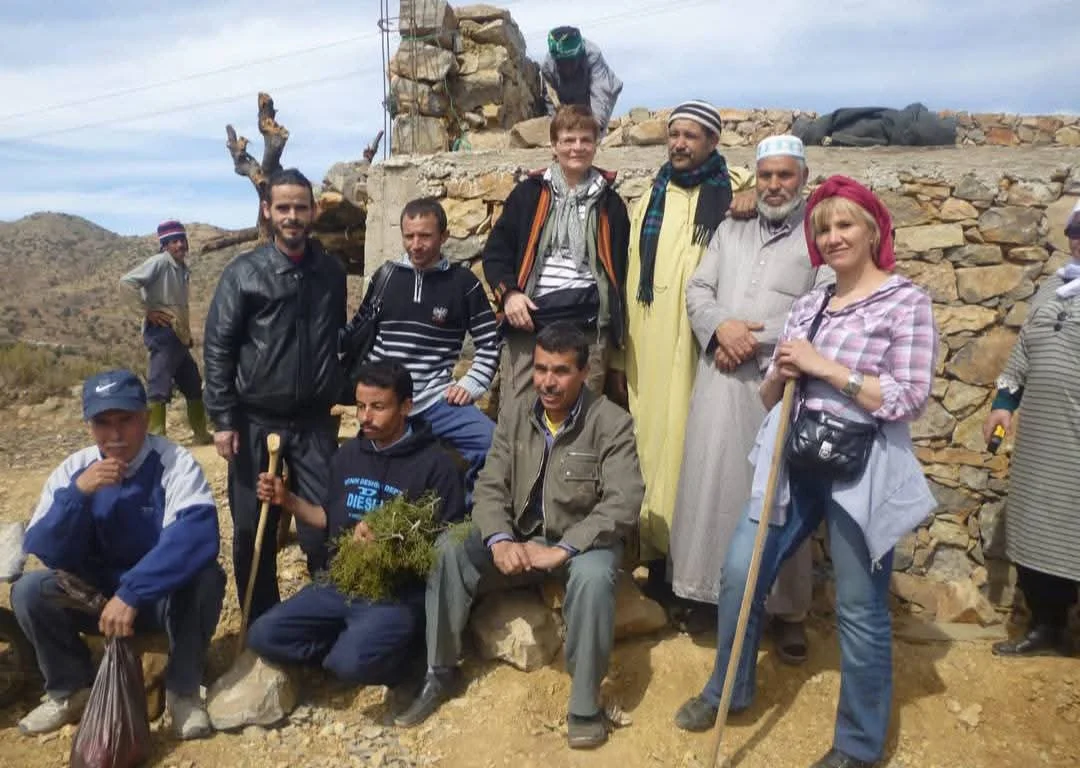
A Life of Cultural Preservation and Humanitarian Work
Khadija Ramim’s journey from Inezgane to Mulhouse, France, has been a lifelong commitment to preserving and promoting her Amazigh heritage. Over the course of 49 years, she has transformed her personal experiences into a powerful mission that bridges cultures, empowers communities, and fosters a deep connection to her roots. Her story is one of resilience, dedication, and unwavering passion for both her cultural identity and humanitarian efforts.
Born in Inezgane, Khadija moved to Mulhouse at a young age, where she quickly adapted to her new environment. Despite being just 16 when she married and left secondary school, her education under French teachers allowed her to speak fluent French, which helped her integrate into the local community. This early exposure to language and culture laid the foundation for her future endeavors.
From Motherhood to Volunteer Work
In the early years of her life in France, Khadija focused on raising her four children. However, her involvement in volunteer work soon began to shape her path. She started offering activities inspired by her upbringing, such as jewelry making, crochet, and Amazigh dances. These efforts led to an invitation to teach at a cultural center in 1985, where she introduced crafts, the Arabic language, and literacy skills to expatriate women who had never attended school.
This experience sparked her interest in community development, prompting her to pursue professional training as a youth program animator. “I didn’t know the basics of the profession before, but later I learned them in a professional way,” she recalls. Her growing expertise enabled her to create meaningful programs that connected people with their cultural heritage.
Founding the Franco Amazigh Association
Khadija’s passion for cultural preservation eventually led to the creation of the Franco Amazigh Association in 2005. Inspired by a chance meeting with a Moroccan woman from Tafraoute, she established the first association in Mulhouse dedicated to Amazigh culture. The organization focused on introducing Moroccan culture first, followed by Amazigh traditions, ensuring a comprehensive approach to cultural education.
She used her inherited Amazigh jewelry collection as part of the association’s exhibitions, showcasing traditional clothing, cooking, music, and other elements of Amazigh heritage. Encouraging women to contribute old utensils and rugs, she created vibrant displays filled with memories of their homeland.
To ensure authenticity, Khadija sought guidance from her family. Her father, who had lived in Ida Ou Tanane, shared stories about the Amazigh people, while her mother and relatives provided insights into their cultural practices. These connections deepened her understanding and strengthened her commitment to preserving her heritage.
Combating Poverty and Promoting Education
Khadija’s charitable efforts extended beyond cultural preservation. In her father’s birthplace, Ida Ou Tanane, she witnessed extreme poverty, lack of access to clean water, and resistance to girls’ education. Determined to make a difference, she visited families personally, emphasizing the importance of schooling for daughters.
Her efforts bore fruit, as many parents were convinced to send their daughters to school. Today, she receives messages from women who have become teachers or professionals, a source of immense joy for her. “Sometimes I cry with joy when I read those messages,” she says.
The association also expanded its reach through collaborations with other Moroccan organizations, supporting single mothers, supplying school materials, providing wheelchairs, digging wells, and repairing roads to help children access education.
A Legacy of Empowerment
Khadija comes from a modest background. Her father worked as a cook at Inezgane Hospital, while her mother received a French colonial-era education. Her husband, originally from Agadir, lost his family in the 1960 earthquake and later moved to France as part of a labor recruitment wave. Khadija was born on the same day her husband lost his father and several relatives, marking the beginning of a life intertwined with challenges and triumphs.
Beyond her cultural and humanitarian work, Khadija also works as a social worker, helping Moroccan women integrate into the French labor market. She encourages graduates to pursue careers that match their qualifications, emphasizing that academic achievements should not be overlooked.
She also trained in sophrology, offering free sessions to help women overcome psychological challenges. “Happiness is contagious,” she says. “Sometimes I forget what I’ve done until someone thanks me for changing their life. My true happiness is making others happy.”
Connecting Generations Through Culture
Khadija’s association organizes cultural trips for children from Amazigh families to Imsouane, allowing them to connect with their roots. “I wanted them to link to their mother culture, and now they visit different areas in the region every year and take more pride in it,” she explains.
In 2015, she was honored by the Mulhouse Prefecture as an exceptional woman, a recognition she cherishes but remains focused on her dreams. Her vision includes building schools in Moroccan villages and establishing cultural centers to preserve heritage for future generations.
Khadija Ramim’s life is a testament to the power of cultural preservation, community empowerment, and the enduring strength of the human spirit.
